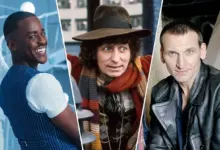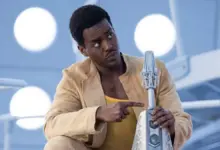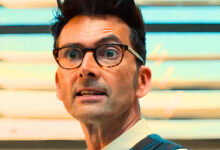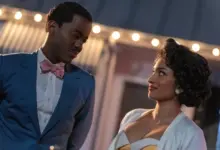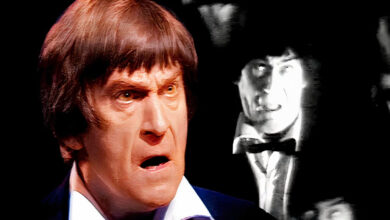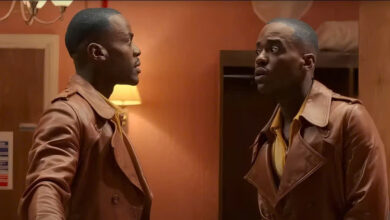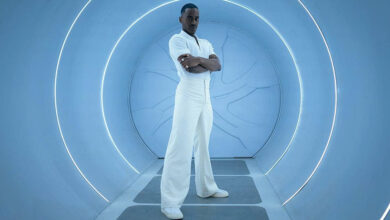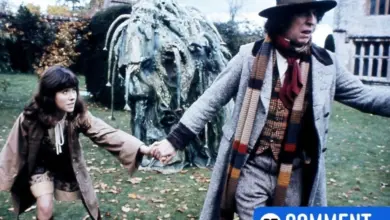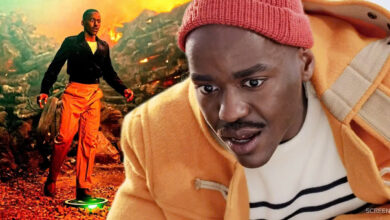5 Major Misfires That Derailed RTD’s Second Doctor Who Era

I was ready to give up on Doctor Who following the hugely disappointing Chibnall era. Then came the announcement: Russell T Davies was returning. And just like that, I had some hope again. The man who had once made the show must watch from 2005 was stepping in to save it once more. With Disney’s backing, a new Doctor in Ncuti Gatwa, and talk of a shared Whoniverse, it all sounded too good to fail…
Two seasons later, that hope feels seriously misplaced. Gatwa is out, and the flagship show feels like it has lost its grip on what made it matter.
Here’s how, and why, I think it all went wrong…
Disney’s Involvement
In theory, the Disney partnership promised bigger budgets, better marketing and global reach. In reality, episodes landed with barely a whisper, and the show’s tone shifted in a way that felt more Disney than Doctor Who. What was once a proudly eccentric sci-fi series began leaning into softer, fantasy-driven storytelling, where things happened more through vague ‘magic’ than reasoned logic. This diluted the show’s traditional scientific grounding and left many plot threads riddled with unanswered questions.
Visually, the increased budget brought more gloss and heavier CGI, but often at the expense of atmosphere. The unique charm of Doctor Who, its scrappy inventiveness and eerie tension, gave way to digital spectacle and sleek production values. While some sequences looked impressive, they rarely felt distinctive. Meaning, the show no longer looked or felt like itself.
Internationally, Disney lacked access to the full back catalogue, including both the classic series and Series 1 to 13 of the modern era. Muddying matters, Gatwa’s debut was rebranded as “Season 1”, a move that confused new audiences and alienated longtime fans. A 60-plus-year-old franchise was suddenly presented without its own legacy, yet continued to rely on it through constant callbacks.
To many, it felt as if Disney treated Doctor Who like any other content drop, just another IP buried in a sea of algorithm-driven releases. The show, once proudly singular, ended up feeling stripped of identity and out of place in a platform that never quite knew what to do with it.
The Hastily Constructed Whoniverse
RTD did not just return to write Doctor Who. He came back aiming to build an MCU-style franchise (ironically, something he had largely achieved naturally during his first era). But that kind of success cannot be manufactured on demand. It worked before because it grew organically from success, not from a predetermined franchise blueprint.
The still-to-air UNIT-centric spin-off, The War Between the Land and the Sea, consumed the time and budget of five episodes. It is baffling that a side-series like that was greenlit before the core show had proven stable or successful again.
Surely it would have made more sense to use those resources for extra specials or a miniseries. Something to build momentum or safeguard the schedule in case Disney pulled out (which by all appearances they have). Instead, we are left with a spin-off few are asking for, and no mothership to anchor it.
The Whoniverse is a good idea, but only if the flagship is already flying.
The Overreliance on Nostalgia, Done Poorly
The 60th anniversary specials were initially fun. I was pretty excited to see David Tennant and Catherine Tate again. But that faded fast when the nostalgia didn’t stop, and worse, when it became so superficial and carelessly handled.
Villains like Sutekh, the Rani and Omega were all brought back, but each suffered the same fate. They were legacy characters in name reduced to brief spectacles, seemingly there to bait long-time fans rather than enrich the story.
But to add insult to injury, Susan appeared for a couple of blink-and-you-miss-it moments with no real purpose or resolution. Then the series ended on a mysterious regeneration twist involving Billie Piper, which even RTD has now admitted he does not know who she is. These moments seem designed to generate headlines, not to serve the story or reward invested fans.
Nostalgia can be powerful when used with purpose. RTD himself did it well in his first era, reviving the Daleks, the Master and Sarah Jane with narrative weight and emotional payoff. Back then, he struck a balance between reverence for the past and storytelling that moved the show forward.
This time, that balance was lost. Instead of building new mythology, the show leaned too heavily on recognisable names. What should have been a fresh era with a new Doctor and companion felt bogged down by constant references. For veteran fans, it was indulgent. For newcomers, it was confusing. And for everyone, it felt like a wasted opportunity.
The Unsubtle Storytelling
RTD has never shied away from political themes, but this time rather than embedding them in rich sci-fi allegory, something Doctor Who once excelled at, his latest episodes often rely on blunt, surface-level messaging.
Classic Doctor Who explored everything from racism to environmental collapse to authoritarianism, but it did so through layered metaphor and thoughtful world building. In RTD’s current run, too many themes are spelled out in dialogue or pushed through one-dimensional characters.
This style of storytelling inevitably divides. Viewers who stuck with the show during the Chibnall years were already tired of this approach, only to find it continued. Whether intentional or not, it gave the impression that RTD expected those fans to quietly move on and be replaced by a more mutually aligned audience.
But that assumption has not worked out. Instead of building a broader base, the show has reached all-time low viewership and left the fandom more divided than ever.
A Poorly Realised Doctor
I wanted to love Ncuti Gatwa’s Doctor. He brought energy, warmth and charisma, all the makings of a memorable incarnation. But like Jodie Whittaker before him, he was let down by writing that gave him little structure or growth.
From the start, the Fifteenth Doctor lacked a personal journey. The scripts gave him no clear arc and no sense of evolution. He was expressive but unfocused, defined more by mood than conviction. Unlike past versions, he did not feel especially clever or authoritative. The alien mystique, the sense that the Doctor sees things others do not, was missing.
Worse still, he rarely took initiative. Across two seasons, Gatwa’s Doctor was often sidelined while companions or supporting characters resolved key conflicts. Ruby, Rogue, Mel and even one-off characters routinely took the spotlight, leaving the Doctor to react rather than lead.
His ever-changing wardrobe did not help either. Without a consistent look, he lacked a recognisable presence, something every previous Doctor had. Pair that with his emotional volatility and passivity, and what we got was a Doctor who felt undefined and forgettable.
The Doctor should be the beating heart of the show, the one the audience trusts to step forward when no one else will. This version never quite earned that. And if the audience cannot get on board with the new Doctor, then what is the point?
Conclusion
RTD’s second era was meant to be a triumphant return. Instead, it has stalled under the weight of its own ambition, nostalgia and misjudged tone. The future of Doctor Who has never felt more uncertain now. A regeneration may come, in tone, in leadership or in vision, but when, and by whom, remains unknown.
Until then, the TARDIS drifts, and so do we…
